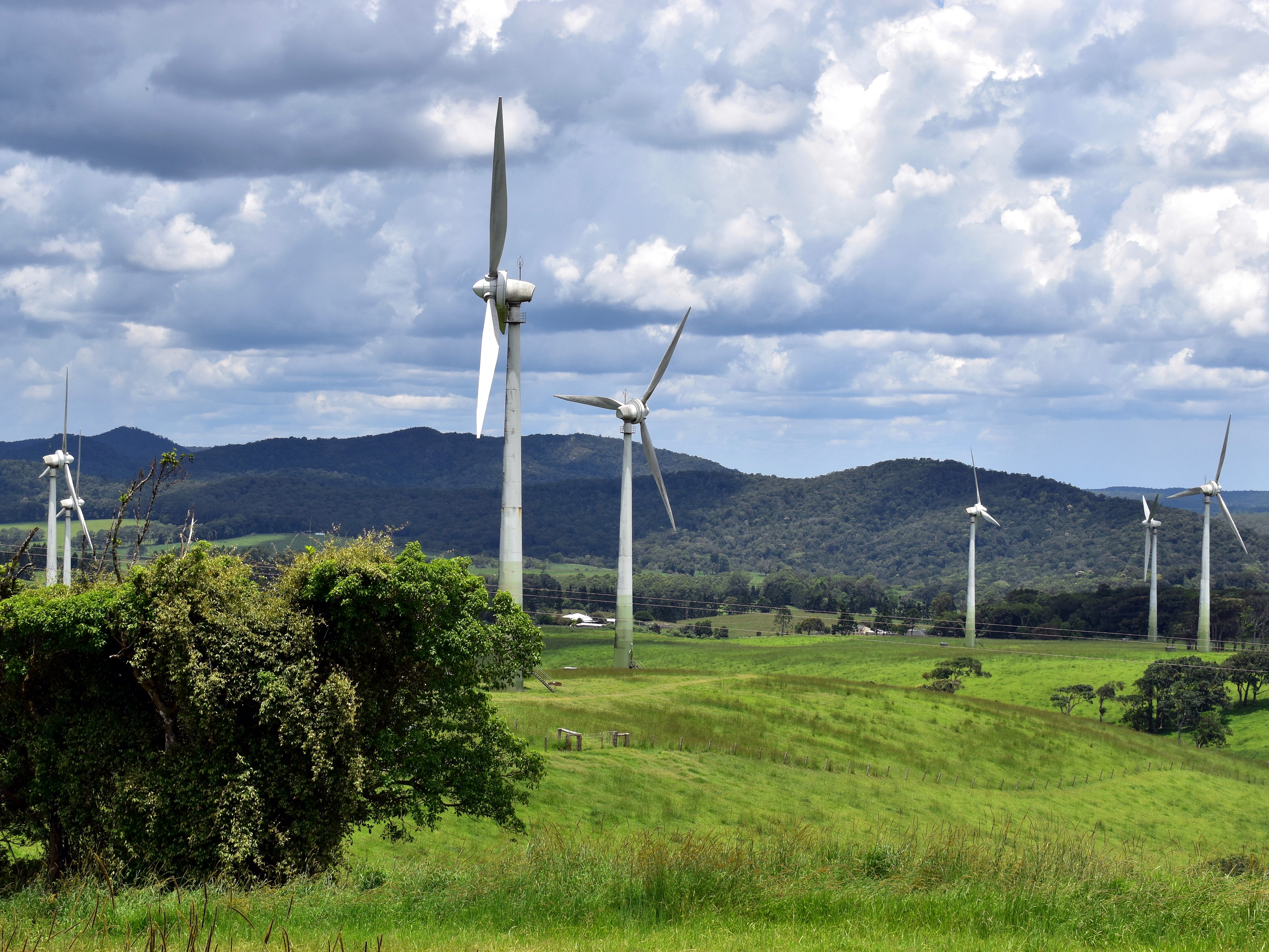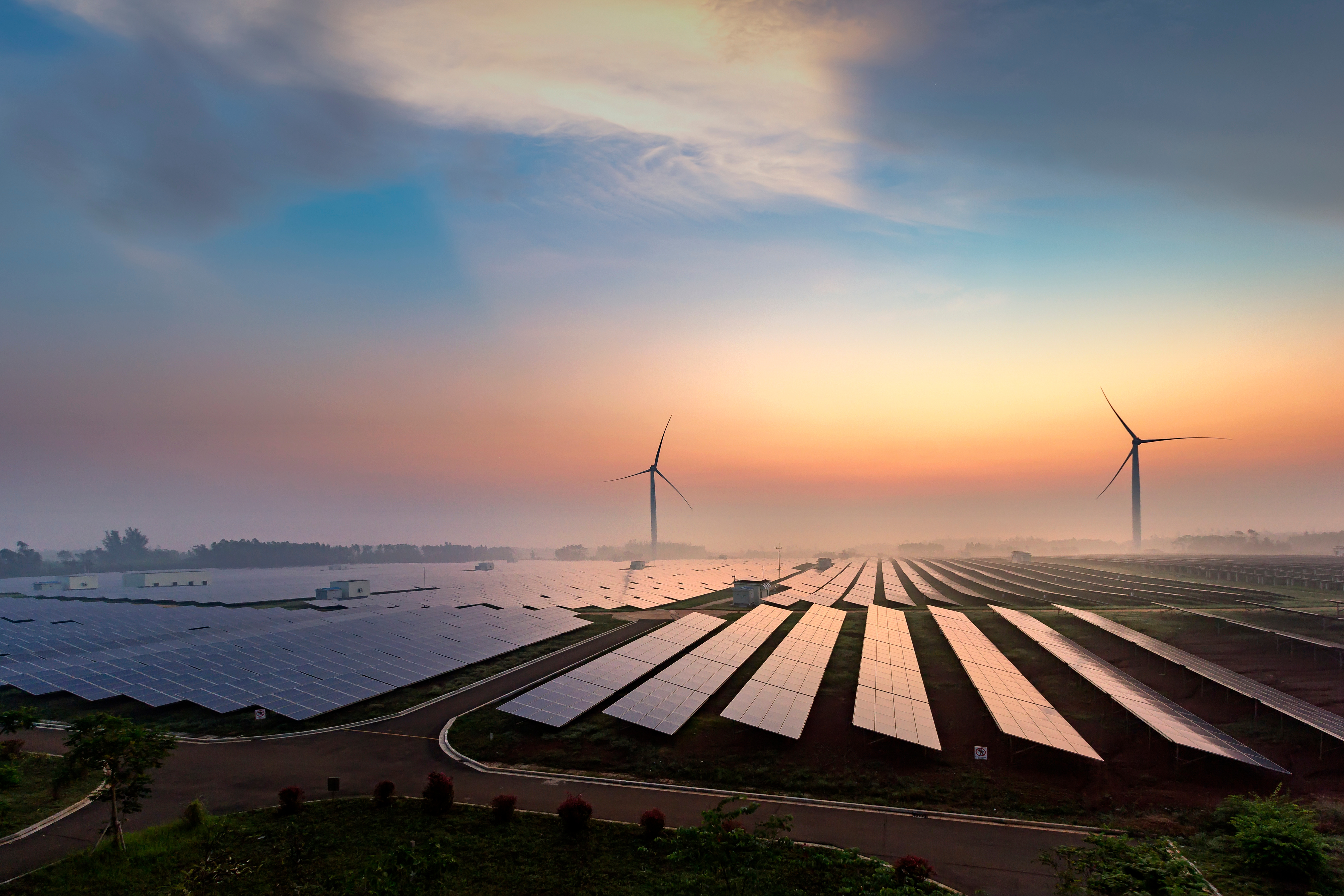Green energy is energy generated from sources that have a minimal negative impact on the environment and contribute to reducing greenhouse gas emissions.
Arche Energy provides green energy solutions across Australia.
Green energy is energy generated from sources that have a minimal negative impact on the environment and contribute to reducing greenhouse gas emissions.
Green energy sources are replenishable and do not deplete natural resources.
Here are some common types of green energy sources:
Solar energy harnesses the power of sunlight to generate electricity or heat. It involves the use of solar panels or photovoltaic cells to convert sunlight directly into electricity.
Wind energy utilises the force of wind to turn wind turbines, which generate electricity. Wind farms with multiple turbines are often installed in locations with consistent wind patterns.
Hydropower, also known as hydroelectric power, generates electricity by harnessing the energy of flowing or falling water. It typically involves the use of dams to create water reservoirs and turbines to convert the kinetic energy of water into electrical energy.
Biomass energy is derived from organic matter, such as plants, crop residues, or wood. It can be used to generate heat or electricity through processes like combustion or biochemical conversion.
Geothermal energy taps into the heat stored within the Earth’s crust. It involves accessing hot water or steam from underground reservoirs to generate electricity or provide heating and cooling.
Tidal energy utilises the movement of tides to generate electricity. It typically involves the use of tidal turbines that capture the kinetic energy of moving water.

Green energy sources offer several advantages over conventional fossil fuel-based energy sources.
Green energy sources produce little to no greenhouse gas emissions or air pollutants, reducing the environmental impact and combating climate change.
Green energy sources are naturally replenished and can be sustained over long periods without depleting natural resources.
Utilising green energy sources helps reduce reliance on fossil fuels, promoting energy independence and reducing dependence on finite resources.
The development and operation of green energy projects contribute to job creation and economic growth in the renewable energy sector.
Green energy sources are less susceptible to price volatility compared to fossil fuels, as they do not rely on global commodity markets.
The regulatory environment and policy frameworks have a significant impact on the adoption of green energy. In some cases, policies and regulations may have favored conventional energy sources, creating barriers or disincentives for the widespread adoption of green energy. However, in recent years, many countries have implemented supportive policies, such as feed-in tariffs, tax incentives, renewable portfolio standards, and carbon pricing mechanisms, which have encouraged investment in renewable energy projects and facilitated market growth.
The traditional energy sector, including fossil fuel industries, has significant economic and political influence. Transitioning to green energy requires managing the interests of various stakeholders and addressing potential economic impacts, such as job displacement and changes in investment patterns. Additionally, the existing infrastructure and investments in conventional energy sources have presented challenges in shifting towards a more sustainable energy system.
The integration of green energy into existing energy infrastructure and electrical grids has presented challenges. Renewable energy sources are often located in remote areas, requiring the development of new transmission lines and infrastructure to transport the electricity to where it is needed. The intermittent nature of some renewable energy sources, such as wind and solar, has necessitated advancements in grid management, energy storage technologies, and grid flexibility to ensure stable and reliable power supply.
The awareness and understanding of the benefits of green energy among the general public have increased over time. As individuals and communities have become more environmentally conscious, there has been a growing demand for cleaner and more sustainable energy options. This increased awareness has influenced consumer choices and pushed companies and governments to prioritise renewable energy adoption.
With all these obstacles, the development and maturation of green energy technologies have taken time. Innovations and advancements in renewable energy sources such as solar, wind, and energy storage have required substantial research, development, and investment to make them economically viable and competitive with conventional energy sources.
To begin with, green energy technologies were more expensive compared to traditional fossil fuel-based energy sources. However, over time, there have been significant cost reductions in renewable energy technologies, making them increasingly cost-competitive. The declining costs of solar panels, wind turbines, and energy storage have played a crucial role in the broader market acceptance of green energy.

Energy advisory consultants play a crucial role in supporting and contributing to green energy projects in several ways.
Energy advisors can provide project management support, overseeing project execution, and ensuring compliance with timelines, budgets, and quality standards. They help coordinate various project stakeholders, manage contracts, and monitor project performance.
Energy advisory consultants assess and recommend suitable renewable energy technologies for specific projects. They evaluate the technical aspects of equipment, energy storage options, grid integration, and system design. Consultants help identify the most appropriate technology solutions and support their seamless integration into the project infrastructure.
Energy advisory consultants assist in developing strategic plans and roadmaps for the implementation of green energy projects. They provide guidance on project development stages, financing options, and long-term sustainability goals. Consultants can help identify the optimal mix of renewable energy technologies and develop strategies to maximise project efficiency and profitability.
Consultants conduct market analyses to identify potential opportunities and risks in the green energy sector. They evaluate market trends, policy frameworks, regulatory incentives, and competitive landscapes. By assessing risks and opportunities, energy advisors help project stakeholders make informed decisions and develop mitigation strategies.
Energy advisors stay up to date with policy and regulatory developments related to green energy projects. They provide guidance on compliance requirements, permit applications, and regulatory frameworks. Consultants can help project stakeholders understand and navigate the legal and regulatory landscape, ensuring adherence to relevant standards and regulations.
Consultants facilitate effective stakeholder engagement and communication throughout the project lifecycle. They help establish relationships with local communities, government agencies, utilities, and other relevant stakeholders. Consultants can support public consultations, address concerns, and promote the benefits of green energy projects to gain social acceptance and support.
Energy advisory consultants can conduct feasibility studies and assess the viability of green energy projects. They analyse various factors such as resource availability, project economics, regulatory environment, and technical feasibility. By providing comprehensive assessments, consultants help project developers and investors make informed decisions about the potential success and risks associated with green energy projects.
Identify potential opportunities and risks in the green energy sector. They evaluate market trends, policy frameworks, regulatory incentives, and competitive landscapes. By assessing risks and opportunities, energy advisors help project stakeholders make informed decisions and develop mitigation strategies.: Energy advisory consultants provide financial expertise and support for green energy projects. They assist in securing project financing by identifying suitable funding sources, preparing financial models, and conducting financial risk assessments. Consultants can also help navigate complex financial structures, secure grants or incentives, and optimise project economics to attract investment.